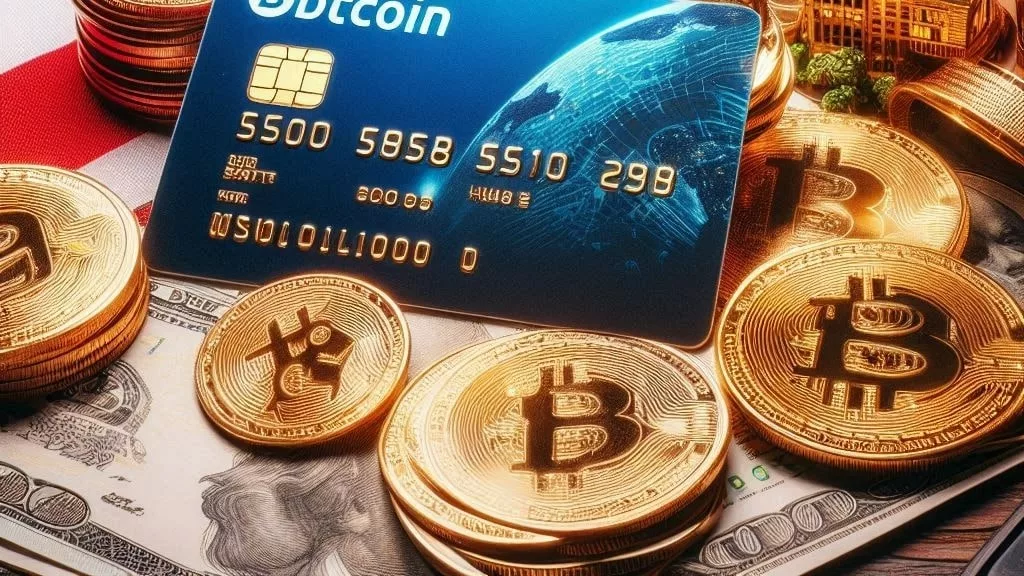
The prospect of wealthy individuals purchasing a path to U.S. residency through a “gold card” initiative has raised eyebrows in the world of cryptocurrency. But what if Bitcoin—one of the world’s most popular digital assets—could be used as a form of payment for this coveted card? This proposal, put forward by David Bailey, CEO of BTC Inc., suggests that Bitcoin could help fuel the United States’ growing Bitcoin reserve, all while offering an innovative approach to the Trump administration’s gold card initiative.
The idea of a “gold card” was first brought into the public eye by former President Donald Trump in February 2025. His vision was to create a paid alternative to the traditional green card, offering the ultra-wealthy a fast track to U.S. residency and potential citizenship. The proposed cost of entry? A hefty $5 million.
Trump’s statement resonated with high-net-worth individuals, especially those from emerging markets, who might find it challenging to move significant amounts of money, such as $5 million, out of their home countries. The gold card would not only allow entry to the U.S. but would also offer green card privileges, which include the ability to live, work, and eventually gain citizenship in the country.
But the road to residency via this gold card isn’t as straightforward as it may seem. Many of the potential buyers—wealthy elites from places like Russia and China—face stiff regulations when it comes to transferring large sums of money across borders. This is where cryptocurrency, particularly Bitcoin, comes into play.
David Bailey, who attended the Trump administration’s recent crypto summit, saw an opportunity to merge two of Trump’s policies: the proposed gold card and the strategic Bitcoin reserve (SBR) initiative. Bailey suggests that Bitcoin could offer a viable and practical way for these wealthy individuals to pay for their gold card without navigating the traditional banking system, thus sidestepping potential restrictions on international money transfers.
On social media, Bailey commented on the advantages of using Bitcoin as a payment method for the gold card:
“Many elites in emerging markets want to live in the U.S. but struggle to move $5M in USD out of their home countries. Bitcoin offers a simpler, safer, and more discreet solution.”
This proposal isn’t just a convenience for foreign investors—it could also serve a larger economic strategy. By allowing Bitcoin to be used for the purchase of gold cards, the U.S. could potentially add to its strategic Bitcoin reserve without the use of taxpayer funds. The reserve would be built from the influx of Bitcoin payments from wealthy individuals, contributing to the country’s growing stockpile of the digital currency, which could be valuable for both economic and geopolitical purposes.
The idea of a strategic Bitcoin reserve has gained traction, especially with the ongoing efforts by the U.S. government to integrate more cryptocurrency-related policies into its financial infrastructure. This reserve would serve as a national stockpile of Bitcoin, which could be utilized for various purposes, including reinforcing the U.S.’s standing in global financial markets and providing an alternative store of value to traditional assets like gold.
Bailey’s proposal would align with the broader vision of the Trump administration, which has been keen on building the reserve to bolster the nation’s economic standing. By incorporating Bitcoin payments for the gold card program, the U.S. could further increase its strategic stockpile without needing to divert taxpayer resources, presenting a win-win scenario for both the government and foreign investors.
Bitcoin’s potential to revolutionize financial systems is no secret. As a decentralized, borderless digital asset, it offers a secure and efficient way to transfer wealth across borders. For the wealthy individuals seeking U.S. residency through the gold card initiative, Bitcoin provides a solution that avoids the cumbersome regulations typically involved in traditional currency transfers.
In addition, Bitcoin is increasingly seen as a hedge against inflation and economic instability, making it a desirable asset for those seeking to diversify their portfolios. By allowing Bitcoin to be used in this context, the U.S. would be positioning itself as a leader in the global cryptocurrency movement, attracting international investors and strengthening its own digital reserve.
The idea of using Bitcoin to purchase a path to U.S. residency could be the first step in a larger shift toward integrating cryptocurrency into official government programs. While the concept of a Bitcoin-based gold card is still in its early stages, the growing interest in cryptocurrency and its potential to reshape financial and immigration policies suggests that this idea could gain momentum in the coming years.
Furthermore, as more countries begin to adopt crypto-friendly policies, the U.S. might find itself competing for the attention of wealthy global citizens looking for more flexible and secure ways to move their money and assets. By embracing Bitcoin and integrating it into national programs, the U.S. could set a precedent for other nations to follow.
David Bailey’s suggestion to use Bitcoin for the proposed gold card offers a glimpse into the future of cryptocurrency integration with national policies. By allowing wealthy individuals to use Bitcoin to pay for residency privileges, the U.S. could both attract global elites and bolster its own Bitcoin reserves without relying on taxpayer funding. Whether or not this idea will become a reality remains to be seen, but one thing is clear: the intersection of cryptocurrency and immigration policy could usher in a new era of global finance and residency programs.



Get the latest Crypto & Blockchain News in your inbox.